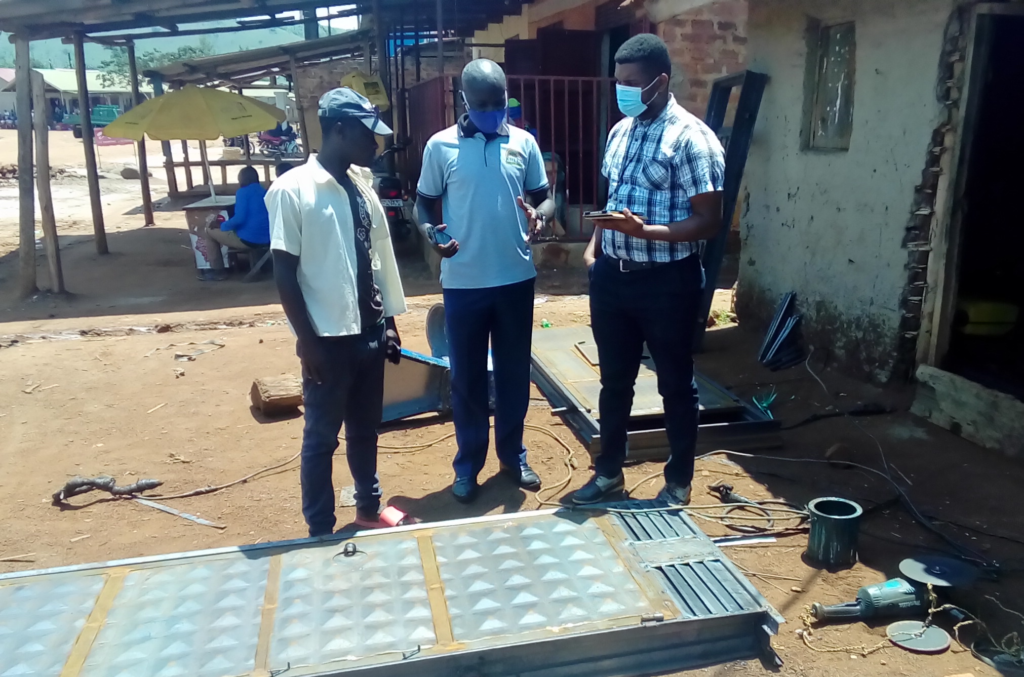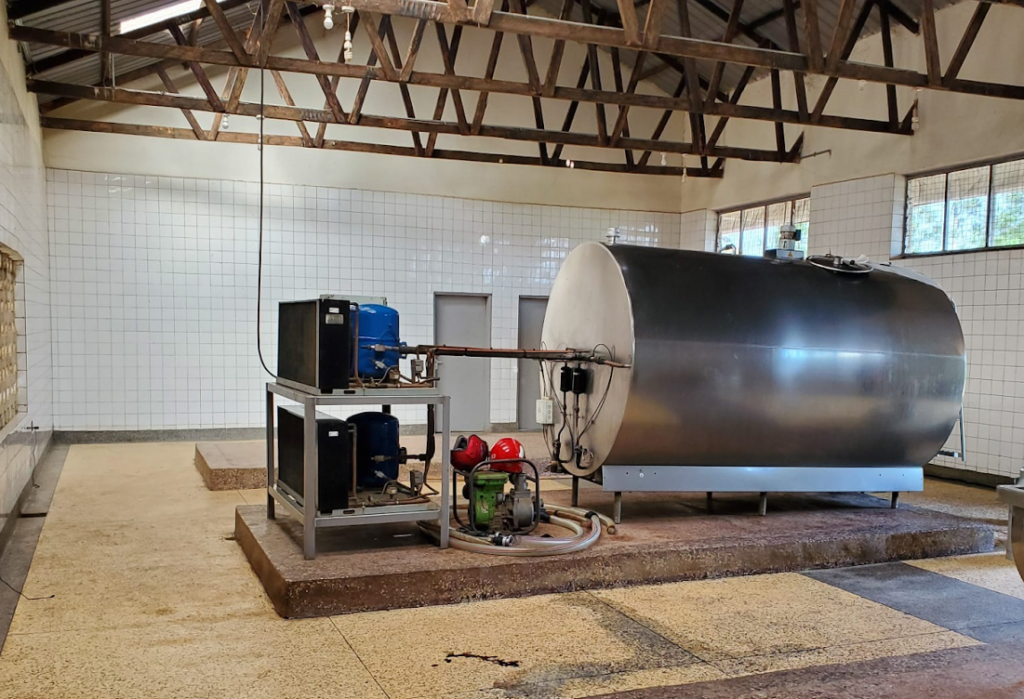The story doesn’t end when the lights come on for the first time in rural communities – electric service is a powerful foundation for strengthening communities. It’s critical to also provide enough knowledge to help them generate more income, improve healthcare services, and access better education. Teaching entrepreneurs the basic fundamentals of business management allow them to further increase their productive use of electricity (PUE) and benefit their communities.
In December 2021, NRECA International trained 10 entrepreneurs to promote PUE in the Kyegegwa Rural Electricity Cooperative Society Ltd. (KRECS) service territory. This has created opportunities for business owners and farmers to shift their operations and use electrical machinery and appliances to increase productivity, reduce fuel consumption, and generate more income. The next step was to equip these rural business owners with the fundamentals of business management like how to operate a business, track income, when to invest, how to apply for loans, and more – all key components of running a successful business. This is the foundation for growing a community’s economy and increasing the use of electricity, which will help a rural electric cooperative like KRECS to also grow and improve their services.

Success Today
During the 6-day training workshop, 10 entrepreneurs were given classroom and on-site instruction on PUE investment fundamentals and decision-making. At the conclusion, participants successfully identified productive use opportunities and solutions that can result in significant income generation in the community. These rural business owners – who are often short on capital – also learned how to evaluate PUE investments and apply for loans.
Tomorrow
KRECS is currently expanding electric service to 4,000 beneficiaries in Katiirwe, where the main source of income is agriculture, specifically herding livestock. NRECA International recently finished constructing a new solar-powered mini-grid in the town. The first power connection will be made to a publicly-owned and operated milk chiller, that is currently powered by a diesel generator. Muhangi Rubeen is a local milk supplier with a government permit to use this chiller as a milk collection point from the Katiirwe community. He buys 3,000 litres of milk from 40 dairy farmers each morning. In the afternoon, he sells the milk to processors and large dairies who drive 200-kilometers from Kampala. It costs USD $1,000 a month to operate the chiller. When the solar-powered electricity is connected, that monthly cost will go down by 20% or more.
Plans are already churning – with an extra USD $200 per month in his bank account, Muhangi Rubeen has his sights on expanding his business to produce yogurt. His story is just beginning.
